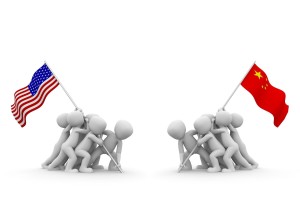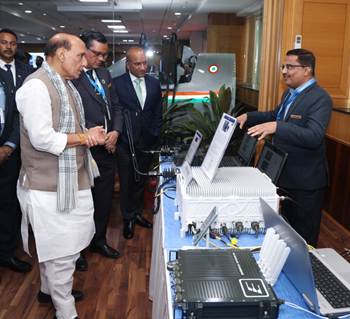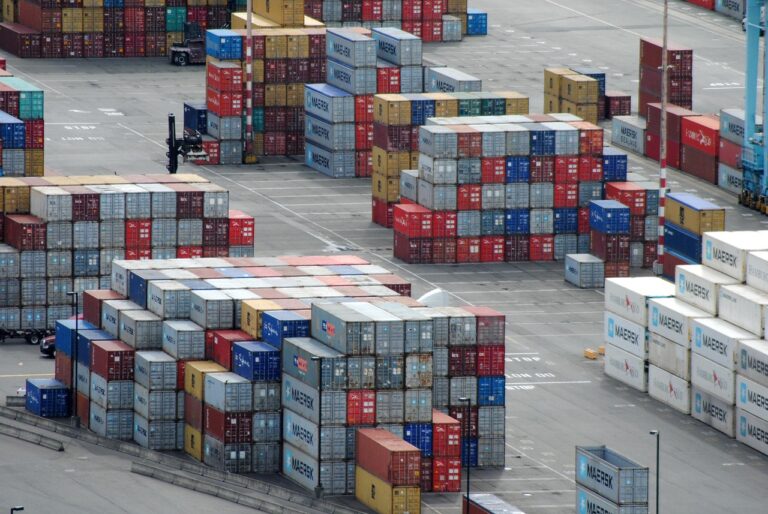
Beijing: The hostility between the West and China continues unabated with verbal attacks on each other at various levels with the Australian nuclear submarine issue at the centre-point.
The latest to provoke China is ensuing French senator Alain Richard led French delegation visiting Taiwan that too has rubbedi China the wrong way. Chinese foreing ministry spokesperson Hua Chunying reminded that the one-China principle is the political foundation for China to develop friendly and cooperative relations with other countries, including France. “China firmly opposes all forms of official contact and exchanges between certain French congressmen and the Taiwan authorities. We urge relevant individuals to abide by the one-China principle and safeguard the favorable environment for normal development of bilateral relations,” she said.
That apart, a day after the US ambassador to Indonesia and Special Representative for the North Korea Sung Kim reportedly said he was not worried that AUKUS [Australia, United Kingdom, United States) would cause an arms race or nuclear proliferation, China hit back today and warned again that the nuclear submarine cooperation among the US, the UK and Australia will bring “real threats to regional peace and stability”.
“I wonder where the confidence in the remarks of the US Ambassador to Indonesia came from and on what basis. In fact, Russian Deputy Foreign Minister Sergey Ryabkov said the other day that Russia has raised a range of questions concerning the AUKUS establishment to the US side, which include whether the nuclear submarine cooperation correlates with international non-proliferation requirements,” Chinese foreign ministry spokesperson Hua Chunying told reporters here
China reiterated that it believes that the nuclear submarine cooperation among the US, the UK and Australia creates serious nuclear proliferation risks, clearly violates the spirit of the Treaty on Non-Proliferation of Nuclear Weapons (NPT), and will have a far-reaching impact on the international non-proliferation system.
“The questions raised by Russian Deputy Foreign Minister Ryabkov actually reflect the common concerns of the international community,” Chunying said.
China today told the three countries – Australia, UK and the US, that they should treat the concerns of all parties seriously and make response to each and every one of them:
First, in what way can the US confirm that its provision of weapons-grade highly-enriched uranium meet international non-proliferation rules and requirements?
Second, how does Australia ensure that the weapons-grade highly-enriched uranium is not excluded from effective safeguards of the IAEA?
Third, if Australia, a non-nuclear-weapon state, can possess weapons-grade highly-enriched uranium, then for what reason the US, the UK and Australia oppose DPRK, Iran and other countries in doing the same?
Fourth, if the US can flagrantly transfer highly sensitive nuclear materials and nuclear technologies to Australia in disregard of international rules and nuclear proliferation risks, then should it immediately stop unilateral sanctions and long-arm jurisdictions over others including the DPRK and Iran for developing nuclear technologies?
Fifth, if all countries turn a blind to rules and conduct nuclear proliferation activities without restrictions as the US, the UK and Australia did, then where is the authority and the meaning of existence of the NPT and international non-proliferation system?
Yesterday, State Councillor Wang Yi pointed out in his phone calls with foreign ministers of Malaysia and Brunei that the nuclear submarine cooperation among the US, the UK and Australia may bring five dangers to the region. First, it could create nuclear proliferation risks and shocks to the international non-proliferation system. Second, it could induce a new round of arms race, as other countries could follow suit and even cross the nuclear threshold. Third, it could undermine regional prosperity and stability and create regional tensions. Fourth, it could undercut ASEAN countries’ efforts to build a Nuclear-Weapon-Free Zone (NWFZ) in Southeast Asia. Fifth, it could lead to the resurgence of Cold War mentality, provoke bloc confrontation and zero-sum geopolitical games in the region.
“I also want to stress that AUKUS, like Quad, is subservient to and serves the Indo-Pacific strategy with US dominance,” Chunying said. According to her, AUKUS sought to start things anew in the region and was a move “against the trend of the times”.
“In fact, for days, different parties of the international community have expressed concerns and worries about the nuclear submarine cooperation among the US, the UK and Australia…Regional countries and the international community should stay wary of and be opposed to this,” Chunying said, adding that China will stay in communication with the Secretariat and other member states of the IAEA to “resolutely defend the authority and efficacy of the international non-proliferation system”.
Also read:
- China claims IAEA safeguards mechanism not enough to rein in AUKUS and Australia
- Pushed to a corner, China claims itself to be a builder of world peace
Incidentally, the verbal battle just did not end here. The US Commerce Secretary Gina Raimondo said in an interview the other day that the US doesn’t want China to write the rules of the road. “If we really want to slow down China’s rate of innovation, we need to work with Europe, to write the rules of the road for technology,” he said.
Chunying hit back saying the remarks of the US official “again exposes the US true intention to contain and block China’s development by all means”. She asserted: ‘This is quintessential autocracy and bullying.”
She claimed China always believed that all countries have equal opportunity and right to development. “International rules should be what is recognized by all countries, rather than something that is decided by a few. Cooperation between countries should be aimed at serving the interests of the whole mankind, instead of ganging up against certain countries based on ideology and seeking global hegemony through bloc politics. Any political manipulation and oppression that threatens to hold back other countries’ development and harm their people’s right to development and a better life will find no support and is doomed to fail,” she said.
China stated that international affairs should be addressed through consultation. “All countries should remain committed to extensive consultation, joint contribution and shared benefits, promote equal rights, opportunities and rules of all, discard small cliques and zero-sum game, adhere to inclusiveness rather than exclusiveness, and engage in international cooperation in a more open, equal and fairer manner,” Chunying said.
– global bihari bureau





